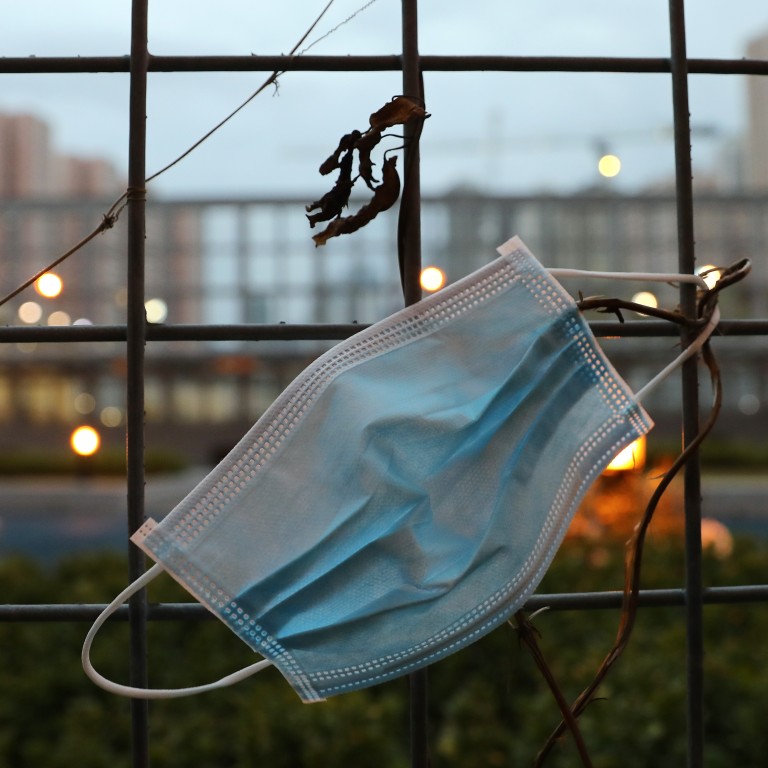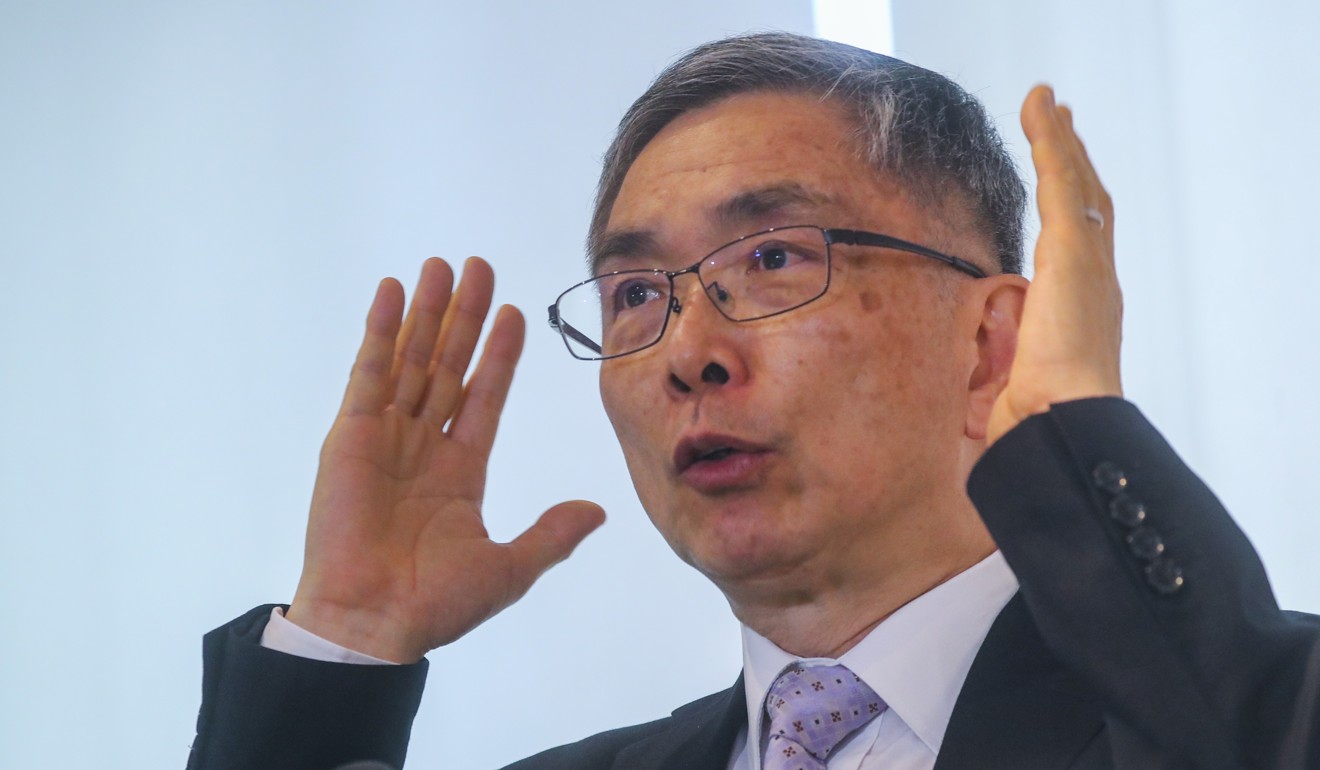
Hong Kong government’s temporary funding package passes legislature without opposition votes
- Pan-democrat lawmakers questioned why package, needed to cover expenses until new budget is approved, included billions for police
- But financial services secretary said proposal included vital cash for protective gear needed amid outbreak
Hong Kong lawmakers passed a HK$215.9 billion (US$28 billion) package on Wednesday that will keep the government funded until the latest budget is approved, after the city’s treasury minister warned any hold-up would undermine the fight against the coronavirus pandemic.
The motion passed in a straight party line vote, with 39 pro-government lawmakers voting in favour, and 24 pan-democrats voting against.
Speaking ahead of the Legislative Council meeting, Secretary for Financial Services and the Treasury James Lau said the package included cash needed for protective gear. As of Tuesday night, the city had identified 386 people with the virus.

Lawmakers have been debating since last Wednesday the package that would fund government operations from April 1 – the start of the financial year – until the full budget is formally approved. The proposal, which came in the form of a resolution under the Public Finance Ordinance, must be put to a vote by the end of March.
But pan-democrats are opposed to the inclusion of HK$25 million for the Chief Executive’s Office and HK$5.5 billion for the police.
“If the resolution is not passed this week, there will be a very serious adverse impact on the anti-epidemic work,” Lau warned, noting the current budget expired on March 31.
Lau said the government had ordered personal protective gear, such as masks, isolation gowns and face shields. “A lot of these require cash payments immediately upon delivery of services or goods.”
The minister did not clarify whether the gear was for civil servants or would also go to non-governmental health care workers employed by the Hospital Authority. Lau did not say how much of the HK$215.9 billion would be spent on gear.
The proposal includes HK$6.2 billion for the authority.
Lau rejected the calls to alter the funding for the Chief Executive’s Office and police, saying the package must be presented as a whole for all departments.
Such interim public financing proposals are a standard way for the government to bridge the gap between the end of the financial year and legislative approval of the new budget.
Pan-democrats continued to filibuster at Wednesday’s meeting. Information technology sector lawmaker Charles Mok said the government did not need to spend billions on the police’s “armoury”.
Wouldn’t it be better if the billions of dollars were spent on education, health care and welfare
“Wouldn’t it be better if the billions of dollars were spent on education, health care and welfare?” Mok said.
Civic Party leader Alvin Yeung Ngok-kiu said the administration could always amend the package.
“Any … [motion] is amendable, especially when it comes to the dollar sign. You can amend funding to certain departments to zero,” Yeung said.
Three pan-democrats – Wu Chi-wai, Andrew Wan Siu-kin and Fernando Cheung Chiu-hung – submitted amendments seeking to scrap the funding for the Chief Executive’s Office and the police.
All amendments were shot down.
No pro-government legislators spoke during the debate.
Democratic Alliance for the Betterment and Progress of Hong Kong lawmaker Vincent Cheng Wing-shun said he was glad the government did not have to face a gap in financing, noting lower-income residents could have had their subsidy payments delayed.
Cheung also said pan-democrats should not have used the debate around the temporary funding to vent their frustrations against the administration.
“The focus should be on the anti-pandemic work, rather than the Chief Executive and police,” Cheung said.
Purchase the China AI Report 2020 brought to you by SCMP Research and enjoy a 20% discount (original price US$400). This 60-page all new intelligence report gives you first-hand insights and analysis into the latest industry developments and intelligence about China AI. Get exclusive access to our webinars for continuous learning, and interact with China AI executives in live Q&A. Offer valid until 31 March 2020.

